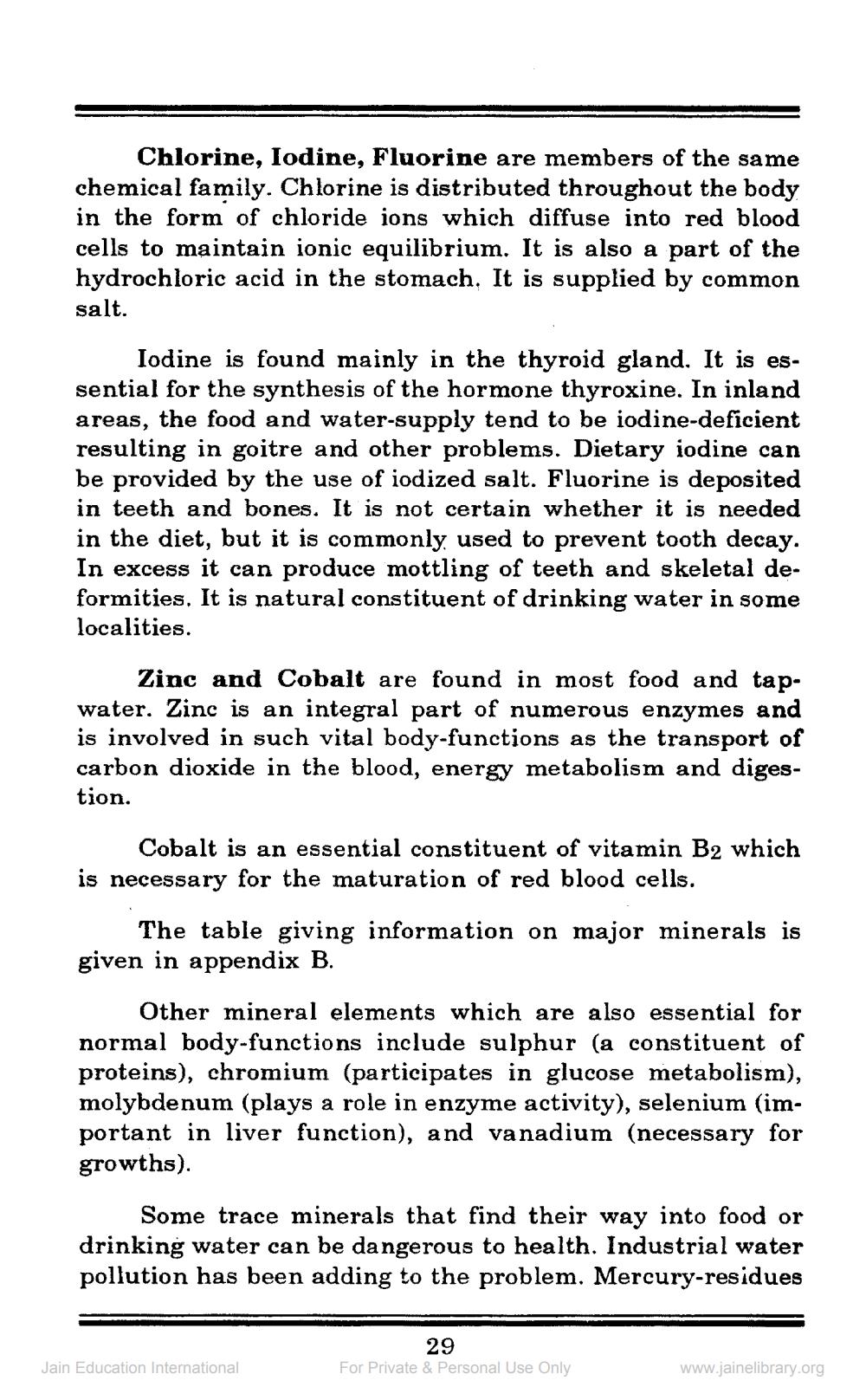________________
Chlorine, Iodine, Fluorine are members of the same chemical family. Chlorine is distributed throughout the body in the form of chloride ions which diffuse into red blood cells to maintain ionic equilibrium. It is also a part of the hydrochloric acid in the stomach. It is supplied by common salt.
Iodine is found mainly in the thyroid gland. It is essential for the synthesis of the hormone thyroxine. In inland areas, the food and water-supply tend to be iodine-deficient resulting in goitre and other problems. Dietary iodine can be provided by the use of iodized salt. Fluorine is deposited in teeth and bones. It is not certain whether it is needed in the diet, but it is commonly used to prevent tooth decay. In excess it can produce mottling of teeth and skeletal deformities. It is natural constituent of drinking water in some localities.
Zinc and Cobalt are found in most food and tapwater. Zinc is an integral part of numerous enzymes and is involved in such vital body-functions as the transport of carbon dioxide in the blood, energy metabolism and digestion.
Cobalt is an essential constituent of vitamin B2 which is necessary for the maturation of red blood cells.
The table giving information on major minerals is given in appendix B.
Other mineral elements which are also essential for normal body-functions include sulphur (a constituent of proteins), chromium (participates in glucose metabolism), molybdenum (plays a role in enzyme activity), selenium (important in liver function), and vanadium (necessary for growths).
Some trace minerals that find their way into food or drinking water can be dangerous to health. Industrial water pollution has been adding to the problem. Mercury-residues
29 For Private & Personal Use Only
Jain Education International
www.jainelibrary.org




